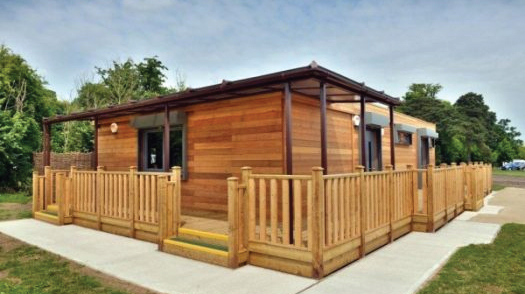Contact our friendly team for more information on our full range of buildings and how to start the process of hiring or buying a modular building for your business. Our expert team is always available to give advice, guidance or support.
Published: 29 August 2019 in Sectors
Are Modular Buildings The Future For School Buildings?

We have spoken a lot about the pressures that the education in this country is under, particularly due to the fact that we have close connections and a vast breadth of experience in the industry. The pressures of rising school numbers and lack of funding is common knowledge, and is particularly prevalent when we see the Department of Education searching for ways to innovate their approach to the expansion of schools.
An example of just this has been the inspiration for this blog post, as it has been revealed that the department are on the hunt for suppliers of its new framework. Here, we will therefore discuss what this new framework is, and how it is an example of the distinct advantages of off-site construction in education.
Government’s hunt for new offsite framework
As we’ve mentioned before, there are two main concerns in the education sector: the rising number of pupils looking for places, and the lack of funding to be able to support the expansion of schools to provide for the former. This has caused the Department of Education to rethink their approach of how to provide enough schools across the country. Their recent approach comes in the form of their off-site schools framework, named the Design For Manufacture and Assembly.
This new framework is a central, unified approach in providing school buildings, and will replace the pre-existing three off-site frameworks which currently exist. The latest approach aims to deliver approximately 30 schools a year, leading to a pipeline of up to £3bn over the next four years. There are two focuses of the framework, one to produce secondary schools and the other to produce primary schools. Through the framework, the department offers design guides to show how these buildings should be produced for efficient delivery, and concerns utilising off-site construction methods. The hope is that with this new standardised approach to constructing school buildings, the firms selected to deliver these schools will be able to meet quotas on time and to provide places for a rising number of pupils.
Our work within the education sector
This bite of industry news demonstrates the validity of our push for educational institutions to turn to off-site construction. The Department of Education is hoping to take a more standardised approach to producing schools, by turning to off-site methods. These techniques are part and parcel of our day to day work here at Springfield, in which our expert team have provided bespoke school buildings to local councils for decades.
One of the primary reasons why schools and local authorities turn to us is the fact that off-site construction offers limited disruption to your school. All buildings are produced in our ISO-approved workshop, where our team construct your project in a fraction of the time it would take to do so with traditional methods. Once complete, we would need only a few days on site to assemble your building – something that can be done over the summer holidays when the children are at home. The increase in speed means there is a decrease in overall cost, in addition to not mixing an active construction site with kids.
We also offer tailored features and facilities for schools to help meet their individual requirements. Features like anti-scald taps, door finger guards and intervention rooms. Our recent work with Moor Hey School is a great example of our bespoke service.
If you would like to find out more about the services we provide in the education sector, or you would like to contact a member of our expert team directly, visit our website or call us on 01744 851958.









